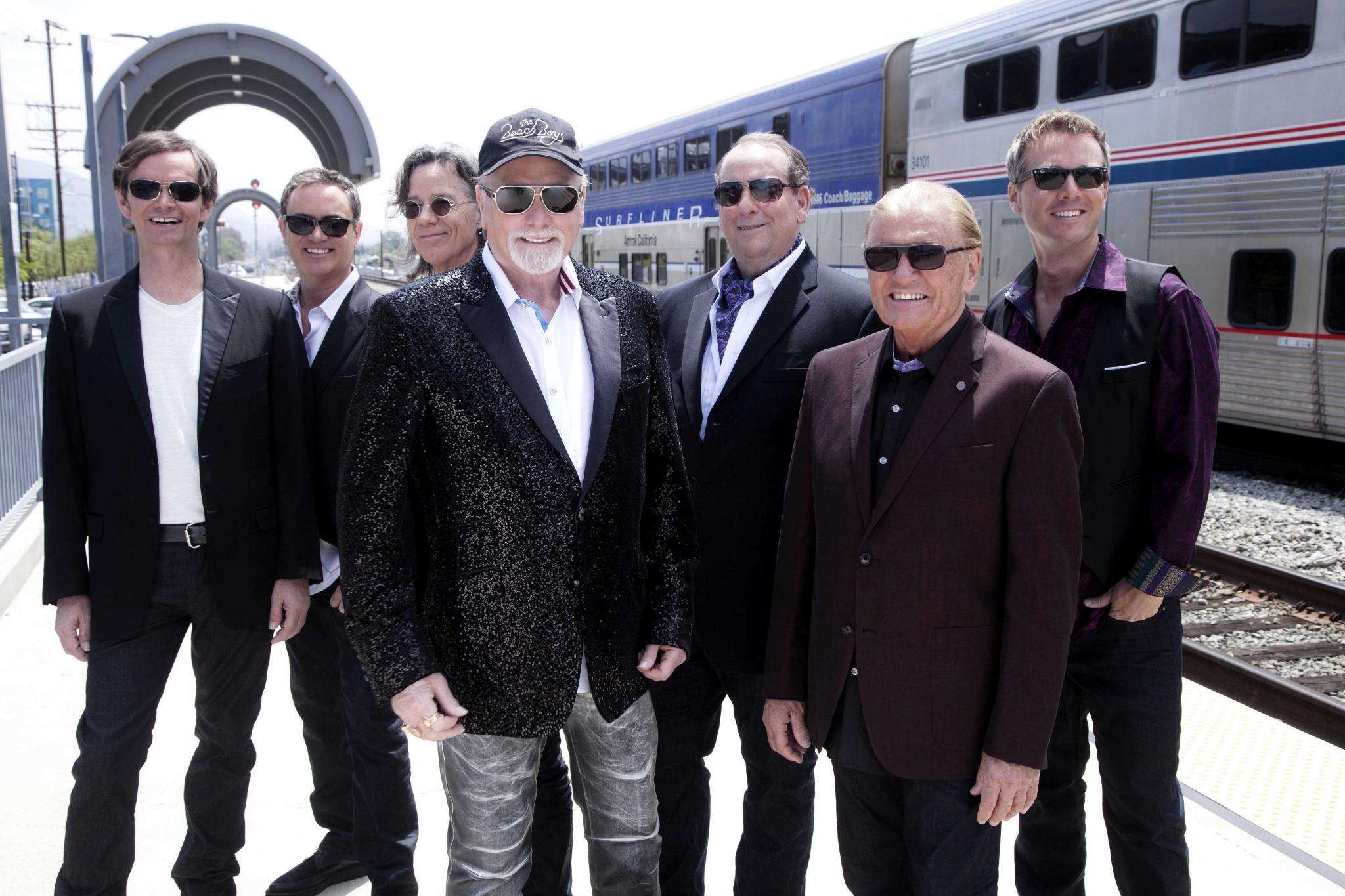The story goes that the young Brian Wilson was taken to see a performance by The Four Freshmen. It was a defining moment in sowing the seeds of a harmony sound that was to go around the world. To The Four Freshmen were added a sprinkling of Chuck Berry and, most importantly, the newly emerging surfer sound. The Pendletones became The Beach Boys, and they caught the wave of the surfing craze of California.
Such was the group's success and the persistence of father Murry Wilson, with whom Brian had a difficult relationship, that the group's popularity rapidly spread across the US and then the Atlantic. But even then and amidst the snappy likes of Surfin' Safari was an underlying maturity, of which there was no better example than the ballad The Warmth of the Sun. Mike Love's lyrics were influenced by the emotional shock of what had happened on the day that he and Brian completed it: the assassination of John F. Kennedy.
The Beach Boys and The Beatles in a sense collided mid-Atlantic. Much was made, to the point of exaggeration, of a rivalry. The fact was that both groups quickly came to appreciate that they could compete on each other's home territory in pursuing their separate ways to becoming the world's two leading pop groups. But the supposed rivalry did nevertheless push Brian into ever greater creative endeavour. He quit touring, being replaced by Bruce Johnston, and the results were to be the staggering output of the mid-sixties.
Both Mike Love and Brian's then wife Marilyn were to remark that Brian could hear things no one else could. And when The Beach Boys returned from a tour, they were presented with what was to be the first Wilson masterpiece - Pet Sounds. Much of it either already recorded or in preparation, the group went through long sessions, fine-tuning the vocal sounds that only Brian appeared to hear.
The classic singles that emerged from Pet Sounds were Wouldn't It Be Nice, Sloop John B and God Only Knows, but there was another song which was to prove to be almost prophetic. I Just Wasn't Made For These Times summed up the reception to the album, in the States anyway and by the group's record label Capitol. While it reached number two in the UK, it managed only tenth spot in the US. The label didn't promote it strongly, believing, as did some of the group, that The Beach Boys were still a surfer outfit. Brian Wilson was ahead of his time.
The reaction was one reason why Brian began to withdraw, but there were further masterpieces to come. The making of Good Vibrations required hours and hours of studio time and a vast budget, but the time and the money were well spent. It was groundbreaking, and when it was performed on Top of the Pops, it became the talk of the playground for one eleven-year-old and his mates. Nothing like it had been heard before, most notably because of Mike Love playing the weird electro-theremin.
And then came what was to acquire mythical status - the unreleased Smile album. Carl Wilson was to say of Smile that it was in fragments. It could have been completed, but he wasn't the one to do so. Brian had to. His mental deterioration was one factor that played a part in creating the myth of Smile, but some of the fragments did emerge. Heroes And Villains was the most obvious, but there was one song which wasn't to appear on record for some four years. When it did, it was as the title track for the album Surf's Up. Using the ambiguous lyrics of Van Dyke Parks, the title itself was ambiguous. The surf was up, but was surf now finally being consigned to the past? The nostalgia of the song remains heart-wrenching. In my opinion it was The Beach Boys' greatest achievement.
There was to be a rediscovery of a simpler approach without the extravagances of Van Dyke Parks, such as with Breakaway. There was the success of the 1973 Holland album, but the group were, in truth, in decline. Brian's condition, legal wrangles; these didn't help. Dennis Wilson went into a downward spiral of drug and alcohol abuse. After a day's drinking, he drowned when he dived off his boat in 1983. Carl succumbed to cancer in 1998.
But along the way came Live Aid and a resurgence of interest as well as the unexpected worldwide success of Kokomo in 1988. Brian was able to disentangle himself from the control of psychologist Eugene Landy and become a force once again, releasing solo material and appearing with the group. Although there was a splintering following Carl's death, the group members would still come back together and did so no more remarkably than with the 2012 album That's Why God Made The Radio. With Brian reunited with Al Jardine, Mike Love, Bruce Johnston and his old school friend David Marks, the album reached number three on the Billboard 200, the highest charting studio album of new material since 1965.
The Beach Boys' story was to become one far removed from the days of the early sixties and the simple pleasure of surf and surfer music. It is one that has provided a legacy of some of the finest pop music ever made.
Which brings us to Palma this summer. On 18 June, The Beach Boys are at the Son Fusteret showground, a line-up which features Mike Love (lead vocals) and Bruce Johnston (vocals and keyboards) plus Jeffrey Foskett (guitar/vocals), Brian Eichenburger (bass/vocals), Tim Bonhomme (keyboards/vocals), John Cowsill (percussion/vocals) and Scott Totten (guitar/vocals).
Tickets are available, prices from 35 euros, at www.ticketea.com.


No comments
To be able to write a comment, you have to be registered and logged in
Currently there are no comments.